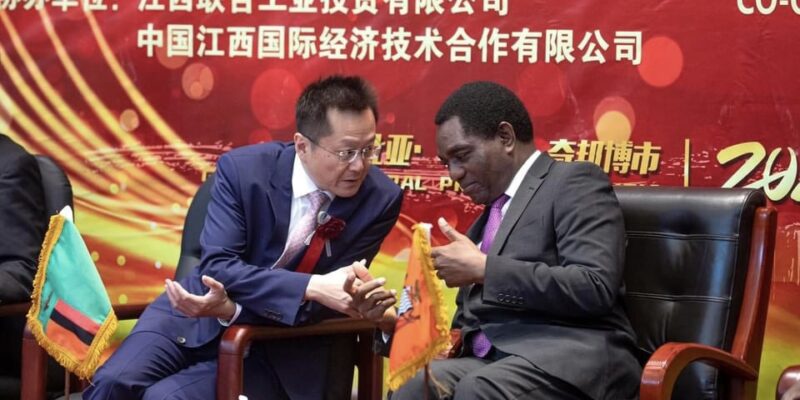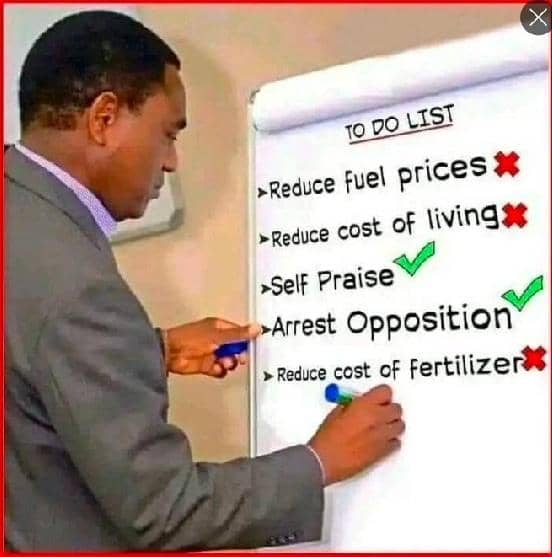
President Hichilema commissions Chibombo Jiangxi International Economic and Technical Cooperation Zone (CJIC).
Zambia’s path to prosperity hinges on embracing diversity, unity, accountability, and inclusivity to transform challenges into opportunities for all.
By Hon. Ponde C. Mecha
Lusaka, Nov. 19 – Zambia stands at a critical crossroads where economic recovery, disaster resilience, and social cohesion must supersede divisive rhetoric and political maneuvering. Historically, we have elected leaders on lofty campaign promises, yet failed to hold them accountable for delivering results. This pattern has eroded trust and stifled progress. However, under the New Dawn administration, there is an opportunity to take a different path – one rooted in inclusivity, resilience, and adherence to a practical roadmap for national development.
Also Read: Zambia’s Political Paradigm Shift: Advancing Collaborative Solutions for the Food & Energy Crisis. Zambia needs to undergo a paradigm shift in its political discourse, prioritizing a political reform agenda that emphasizes collaborative solutions over partisan politics to address critical issues such as the food and energy crisis.
Here, I examine four strengths of the New Dawn Government that, when paired with constructive opposition, can drive Zambia’s socio-economic transformation.
1. Strengthening Disaster Management and Climate Resilience
Zambia has increasingly faced climate-induced disasters – droughts, floods, and erratic rainfall – that have devastated rural livelihoods. The UPND government has responded with commendable disaster risk management strategies, including enhanced funding for the Disaster Management and Mitigation Unit (DMMU) and the introduction of climate adaptation programs that empower vulnerable communities.
The 2025 national budget further underscores this commitment through subsidies on agricultural inputs, food relief programs, and investments in climate-smart agriculture. While challenges persist, these efforts lay the groundwork for long-term resilience and sustainable development.
2. Debt Restructuring: A Gateway to Economic Stability
A major success of the UPND government has been its progress in debt restructuring. The inherited debt crisis severely limited fiscal space for critical investments. Through strategic negotiations with creditors and adherence to international frameworks like the Common Framework for Debt Treatments, Zambia has secured relief, easing economic pressures.
Debt restructuring is a means to an end: freeing resources for investment in health, education, and infrastructure. If Zambia channels these resources effectively, the long-term gains will justify the sacrifices made during this challenging process.
3. Refocusing on the Manifesto: A Practical Blueprint
The UPND manifesto serves as a pragmatic guide to addressing poverty, unemployment, and inequality. Its pillars – economic diversification, education reform, agricultural modernization, and infrastructure development – can create tangible benefits across society.
Farmers can benefit from irrigation investments, improved market access, and climate-resilient technologies. Youths can find opportunities through job creation and entrepreneurship programs. Urban dwellers can see enhanced living conditions through infrastructure and housing initiatives. These priorities, when implemented effectively, transcend partisan lines and represent milestones for all Zambians.
4. Inclusive Governance: A Path to Unity
National progress thrives on inclusive governance. The UPND has an opportunity to bridge the political divide by incorporating opposition ideas and fostering dialogue with stakeholders. This approach strengthens democracy and promotes unity.
For instance, the opposition’s emphasis on decentralization aligns with the government’s commitment to expanding Constituency Development Funds (CDFs). Similarly, bipartisan collaboration on energy, education, and health can produce sustainable, widely supported policies.
Also Read: Boosting Rural Resilience: How NHIMA, FISP, and Cash-for-Work Can Secure Zambia’s Food Future. By adapting the cash-for-work program to benefit rural farmers, and improving the efficiency of NHIMA and FISP through targeted reforms, Zambia can create a more resilient and sustainable food system.
Conclusion: Toward a Unified Zambia
Zambia’s greatest strength lies in its diversity – of people, ideas, and perspectives. The UPND has made strides in addressing pressing issues, but sustained focus, accountability, and inclusivity are critical. President Hichilema must build trust by delivering results and embracing diverse inputs.
Unity of purpose should guide us through these complex times. The 2026 elections must not deepen divisions but reaffirm our collective progress. Zambia’s challenges are surmountable if we focus on shared goals and work together as a nation.
This is a call to action – not to blindly support or criticize any political party but to unite for a prosperous, peaceful Zambia where everyone has a fair chance to thrive. That dream is within reach if we commit to unity of purpose.
Also Read: Opposition Leadership: For the People, Not at Their Expense. Examining Dr. Chitalu Chilufya’s call for political leadership that champions dialogue and service for the nation, rather than one using the struggles of ordinary Zambians for self serving political ambitions.
About The Author: Hon. Ponde Chunga Mecha is the immediate past MP for Chifunabuli Constituency. He has worked and executed various development programmes in the agriculture sector under various funding sources including GRZ, World Bank, NORAD, FINNIDA, FAO, Melinda and Bill Gates Foundation, USAID and the EU.
About Our Advocacy: Woodpecker’s Digest provides in-depth analyses and commentary on issues of national importance, alongside articles on personal development and health. We believe journalism can be a force for socio-economic change.
©2024 Woodpecker’s Digest.
Journalism for social change








